7 Predictions for the Theater in 2018
TheaterMania offers a guide to tomorrow’s big stories.
You can't see the future, but if you stop and listen, you can hear which way the wind is blowing. With that in mind, here are seven predictions from TheaterMania about the trends and ideas that will shape the theater in the coming year:
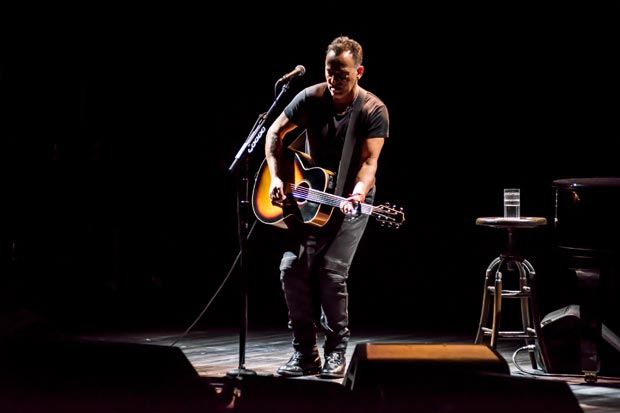
(© Robert DeMartin)
1. More A-List Musicians Will Play Broadway
Bruce Springsteen is changing the game at the Walter Kerr Theatre. While numerous high-profile musicians have created "theatri-concerts" for the Broadway stage — a list that ranges from the likes of Bette Midler to Duran Duran — Springsteen's solo show, complete with dark, brooding monologues about his life and new acoustic takes on his extensive song catalogue, plays more like Billy Crystal's introspective 700 Sundays than a career retrospective highlighting his greatest hits.
Springsteen on Broadway is a cash cow, with the intense demand for tickets resulting in every single show selling out (to the point that the run has been extended through the end of June). High-profile artists have always been interested in shifting the paradigm of what audiences expect, and viewers are obviously eager to see their heroes perform in intimate settings. In 2018, we're predicting that more A-list musicians will follow suit and create intimate concerts of their own. Here's looking at you, Gaga.
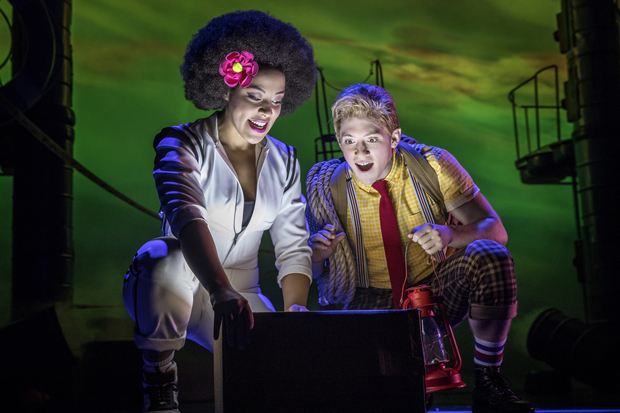
(© Joan Marcus)
2. The '90s Are Back
We all know Broadway loves recycling successful properties from the mainstream worlds of entertainment, with recent examples including Anastasia, SpongeBob SquarePants, and the upcoming Harry Potter and the Cursed Child. Besides success on the Great White Way, the other factor these examples have in common, of course, is that they were entertainment staples for children of the '90s.
As the adults who grew up on Rugrats start creating rug rats (and expendable income) of their own, it makes sense for Broadway to capitalize on millennials' nostalgia by providing kid-friendly shows that they can enjoy with their offspring. There are examples of this continuing phenomenon already on the horizon, with Mean Girls opening this spring and surely more to come. So if you're not feeling ready for a Sonic the Hedgehog musical, it's about time to dust of your Sega, crack open a can of Surge, and get ready for the all-singing, all-dancing return of the '90s.
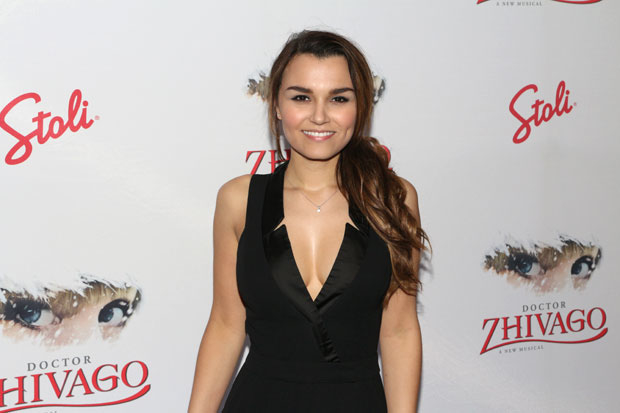
(© David Gordon)
3. Adaptations Will Become Looser in an Effort to Meet the Sensibilities of 2018
Broadway producers love nothing more than plucking proven properties from the film archives, finding a creative team to work its musical theater magic, and coming out the other side with a crowd-pleasing hit that runs for years. But while titles like the Broadway-bound Pretty Woman might start with a leg up in terms of name recognition, screen-to-stage adaptations are facing their own Everest that keeps getting steeper.
In 1990, audiences were ready and willing to swoon over a silver-haired millionaire rescuing a young prostitute with untapped potential from a future of streetwalking. In the #MeToo era of 2017-18, however, that story — among others with similarly outmoded romantic tropes — will have a much harder time appealing to audiences with keener sensitivities to stereotypes, female representation, and overarching gender and racial diversity.
Artists will have to tick all of these boxes if they want to be embraced by fans and endorsed by critics — so that means these decades-old stories are going to have to get a modern tune-up. We're predicting this will mean musicals with weaker resemblances to their source material but perhaps finished products that finally pass the Bechdel test.
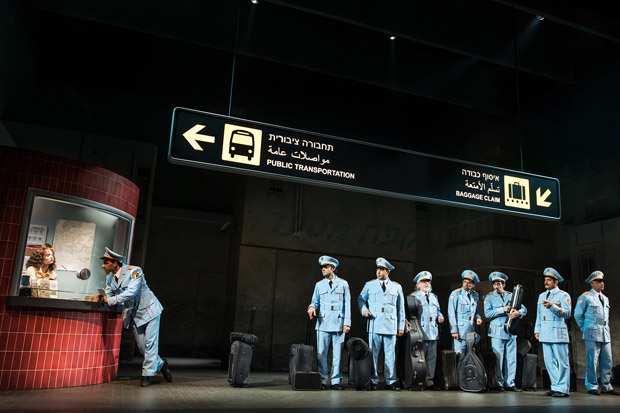
(© Matthew Murphy)
4. Multilingual Theater Will Bridge the Gap Between Communities
Multilingual theater has appeared on Broadway through the years, but it started to become more mainstream after Lin-Manuel Miranda's In the Heights, and the crossover continued with the revival of West Side Story in which select songs were translated (by Miranda) into Spanish.
Currently, The Band's Visit is performed predominantly in English but also includes Hebrew and Arabic spoken onstage, while the Public Theater's recent Oedipus El Rey reimagined a centuries-old Greek play in English and Spanish. Yiddish was also heard on Broadway in last season's production of "Indecent." This spring will see a Broadway revival of Mark Medoff's Children of a Lesser God, in which characters use American Sign Language to communicate (A.S.L. was also featured in the recent Broadway revival of ''Spring Awakening").
Regional theater is getting on board with multilingual productions as well. At the Colony Theatre in Miami Beach, Michel Hausmann's Miami New Drama opened its season with a trilingual production of Thornton Wilder's Our Town performed in English, Spanish, and Creole. The company will continue with a Latinx riff on Miss Julie called Queen of Basel.
We predict that in 2018, the theater industry will further bridge the gap with even more multilingual productions of new plays and musicals as well as the classics, appealing to all audiences that make up this melting pot of a country.
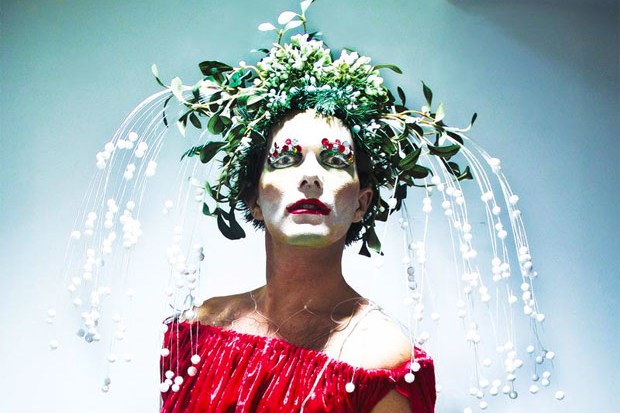
(© Vess Pitts)
5. Theater Awards Committees Will Reconsider the Value of Gender-Specific Categories
As American society continues to embrace broader, more diverse ideas about gender and identity, the way we recognize excellence in the theater world will have to evolve too. Traditional award categories recognize exceptional performances by actors and actresses, but not all performers identify themselves according to the male-female binary. A transgender performer, for example, whose work deserves award recognition should not be forced to accept an award that does not agree with their gender identity, however they define it for themselves.
That's why we predict that in 2018, theater award committees will begin serious discussion about how to replace actor and actress categories with gender-neutral labels. This sea change will not take place overnight, but the time is ripe for us to scrutinize the reasons we recognize performance excellence based on gender in the first place and for coming up with new ways to honor the theater's top talent without taking an artist's sex chromosomes into account.
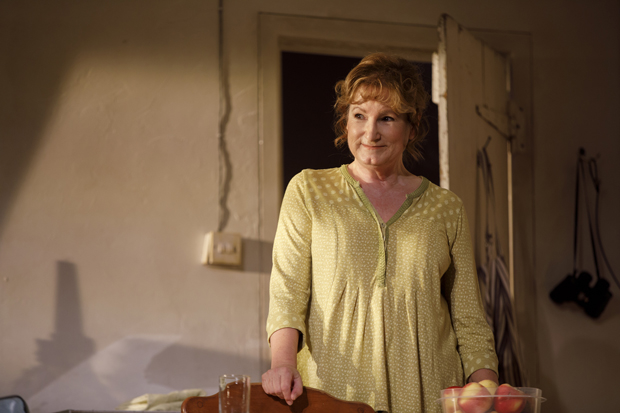
(© Joan Marcus)
6. End-of-Times Dramas Will Become All the Rage
Nuclear war. Climate change. D.I.Y. terrorism. The news on any given day already sounds like the first act of an apocalyptic drama, so how long before the mayhem transfers to the stage? Spoiler alert: It already has. Lucy Kirkwood's The Children, set in the wake of a nuclear disaster, premiered last year at London's Royal Court Theatre and opened on Broadway earlier this month. We're guessing more worst-case-scenario plays will follow in 2018. They may, like The Children, be new works or, like the production of Samuel Beckett's Endgame at Los Angeles's Kirk Douglas Theatre last year, timely revivals. Either way, expect to be discomfited.
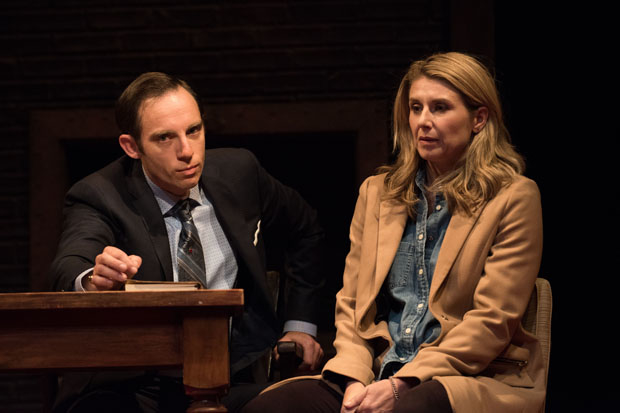
(© Ahron R. Foster)
7. Playwrights and Directors Will Traffic in Truth and Lies
In the era of "alternative facts" and "fake news," it is often difficult to know who is telling you the truth, who is lying to you, and who is just regurgitating the lies they themselves credulously consumed. In an effort to reflect this disturbing trend, theater makers will blur the line between fact and fiction onstage. Rajiv Joseph is already doing that in his epic Russian history play, Describe the Night, which weaves verified history, myth, and conspiracy theories into one fascinating narrative. Directors will also start breaking down the unspoken, trust-based conventions of the theater (curtains, house lights, applause) in order to make audiences viscerally feel the sensations of confusion and doubt. Lee Sunday Evans did that stunningly in the New York debut of Christopher Chen's Caught last year. America's leading artists seem poised to grapple with the notion of the truth as we do the same in our society at large.










